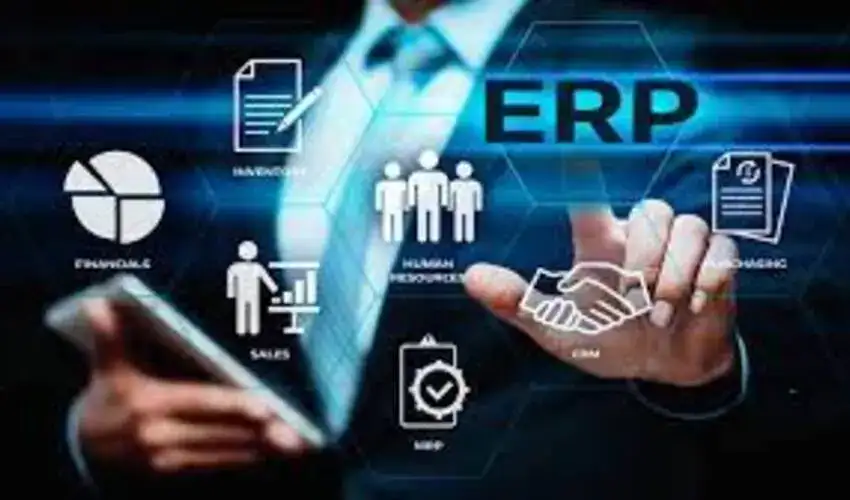An ERP system can be a game-changer for organizations. It boosts efficiency, data integration, and decision-making. But, to succeed with ERP, you must understand and manage its cost. This article will cover the costs of ERP systems. It will also give budgeting tips to help organizations make smart financial choices.
Understanding Enterprise Resource Planning Cost
The cost of ERP systems can vary widely. It depends on many factors, such as the organization’s size, operations complexity, and the chosen ERP solution. Here are the primary components of ERP costs:
1. Software Costs
The software itself is a significant portion of the ERP cost. This includes the cost of the ERP licenses. It can be based on the number of users, the needed modules, and the deployment model (on-premises or cloud-based).
2. Implementation Costs
Implementation costs cover the expenses involved in installing and configuring the ERP system. This includes project planning, system customization, data migration, and integration with existing systems. The costs to put a plan into action often exceed the software costs. This is especially true for big organizations with complex needs.
3. Training Costs
Training is essential to ensure employees can effectively use the new ERP system. Training costs include making training materials. They also include running training sessions and giving ongoing support. Investing in comprehensive training can reduce the risk of operational disruptions post-implementation.
4. Maintenance and Support Costs
Ongoing maintenance and support are necessary to keep the ERP system running smoothly. This includes software updates, bug fixes, technical support, and system upgrades. Maintenance costs are typically recurring and should be factored into the long-term budget.
5. Hardware Costs
For on-premises ERP systems, hardware costs can be significant. These include servers, storage devices, and other infrastructure to host and run the ERP software. Cloud-based ERP solutions can reduce hardware costs but may involve higher subscription fees.
6. Consulting Costs
Many organizations engage consultants to assist with ERP implementation. Consulting costs can cover many services. These include project management, process reengineering, and change management. Consulting can add to the initial cost. But, it can also help ensure a smoother implementation.
Budgeting Tips for ERP Implementation
To budget for an ERP, you need careful planning. You must consider many factors. Here are some tips to help organizations manage their enterprise resource planning cost:
1. Conduct a Thorough Needs Assessment
Before choosing an ERP system, do a thorough needs assessment. It will help you understand your organization’s specific requirements. Identify the key functionalities needed, the number of users, and any customization requirements. This assessment will help pick the right ERP solution. It will also help estimate the costs accurately.
2. Choose the Right Deployment Model
Decide if an on-premises ERP or a cloud-based one is better for your organization. On-site solutions may have higher upfront costs. This is due to hardware and infrastructure needs. In contrast, cloud solutions usually have low initial costs but high ongoing fees. Consider the long-term total cost of ownership (TCO) when making this decision.
3. Plan for Customization and Integration
Customization and integration can significantly impact the cost of ERP implementation. Some customization may be needed to meet business needs. But, too much can raise complexity and cost. Use out-of-the-box features when you can. Plan carefully for integrations with existing systems.
4. Allocate Sufficient Training Budget
Ensure that the budget includes adequate provision for training. Effective training can reduce the learning curve and minimize disruptions. Consider different training methods. These include on-site training, online tutorials, and workshops. They cater to different learning preferences and needs.
5. Factor in Contingency Costs
Unexpected issues can arise during ERP implementation, leading to additional costs. Allocate a contingency budget to cover unforeseen expenses, such as additional customization, extended project timelines, or additional training needs. A contingency budget of 10-20% of the total project cost is recommended.
6. Evaluate Maintenance and Support Costs
Understand the ongoing maintenance and support costs associated with the chosen ERP solution. This includes annual maintenance fees, support contracts, and costs for future upgrades. Evaluate different support options and choose a plan that aligns with your organization’s needs and budget.
7. Engage Experienced Consultants
Engaging experienced ERP consultants can provide valuable insights and help avoid common pitfalls. Consultants can assist with project planning, risk management, and change management. While this adds to the initial cost, it can lead to a more efficient and successful implementation.
8. Monitor and Control Costs
Use a strong project management framework. It will track and control costs during the ERP implementation. Regularly review the project budget. Track actual expenses against planned costs. Adjust the budget as needed. Controlling costs can prevent overruns. It ensures the project stays on track.
9. Review Vendor Contracts Carefully
When negotiating contracts with ERP vendors, carefully review all terms and conditions. Make sure the contract clearly outlines the scope of work. It should cover deliverables, timelines, and payment terms. Watch for hidden costs. These include extra fees for customizations, support, or future upgrades.
10. Plan for the Long Term
Consider the long-term financial implications of the ERP system. The initial cost is high. But, you should factor in the long-term benefits. These include improved efficiency, data accuracy, and decision-making. Plan for the ongoing investment in maintenance, support, and system upgrades. This will maximize the value of the ERP system.
Conclusion
Managing enterprise resource planning costs well requires strategy and careful planning. By understanding the cost components and following the budgeting tips in this article, organizations can make smart financial decisions. They can also ensure a successful ERP implementation. Investing in the right ERP system and budgeting well can lead to big, long-term benefits. They improve efficiency and support growth.



